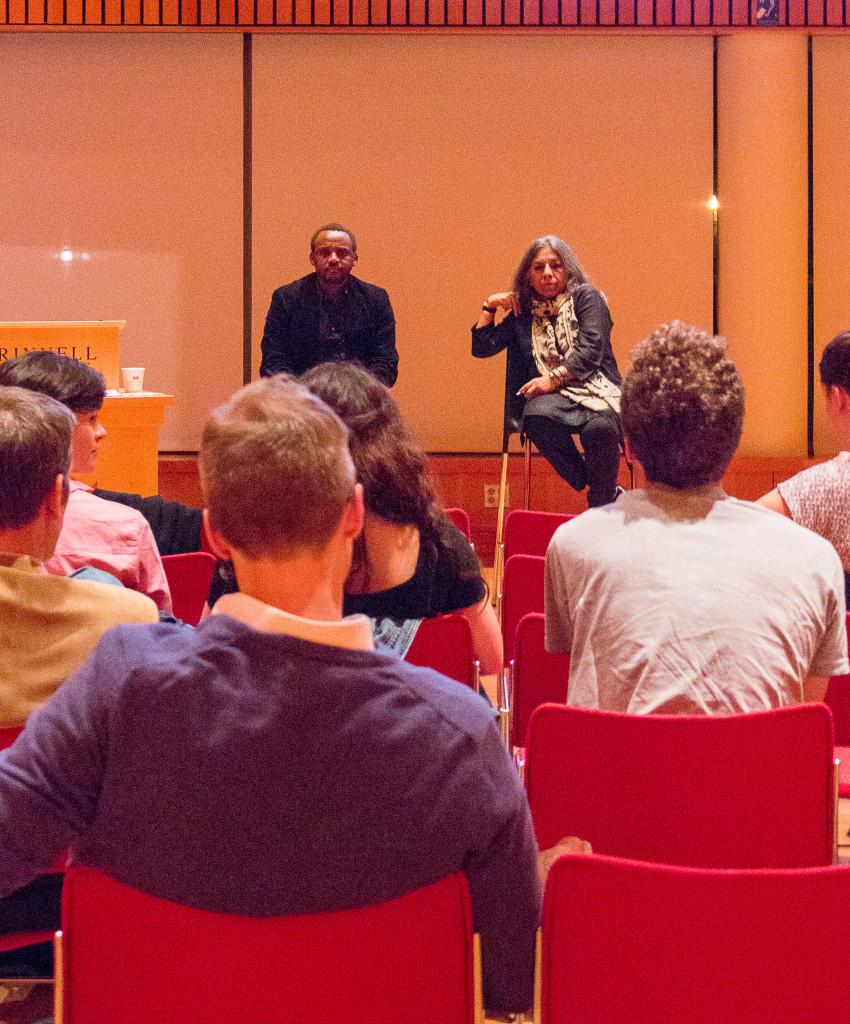Progressive publishers shared about their creative community in a presentation with students and faculty on Wednesday, Nov. 4. Urvashi Butalia, founder of Zubaan Books, India’s first feminist publishing house, and Billy Kahora, managing editor of Kwani Trust, a literary network in Nairobi, Kenya, spoke as part of the Center for Humanities series, “Sites of Creativity: Streets, Salons, Studios and Schools.”

Both Zubaan and Kwani Trust use publishing as a way to speak out against norms in their countries. Zubaan and its former incarnation, Kali for Women, began as a way to give voice to Indian women during the rise of the women’s movement in the 1970s.
“It seemed to us a bit crazy that we were not writing on issues of concern to us. I was working in publishing at the time and I tried to talk to my bosses about the possibility of us publishing books by women on women’s issues. There wasn’t that much interest. They didn’t think women had anything much to say,” Butalia said. “So the idea was really to create knowledge about ourselves, and in some ways, reverse the flow of information from things coming always from the North or the West to us.”
Kwani Trust formed to produce publications that speak out against the hegemonic story in Kenya, including a literary journal, pocket-sized books and a literary festival. They also seek to help creativity become professionalized.
“Kwani’s very interested in setting up a well-run arts institution that’s … professional. That tries to create a space that also provides all the capacity skills that are required to produce this content,” Kahora said.
Both groups find community and encouragement to be central in creating the kind of work that they want to publish. Kwani Trust uses its position as a literary network to bring in its material and the employees publishing expertise to give their writers opportunities.
“If you’re going to produce literary content, I think the work of the artist [is to] write the material,” Kahora said. “But there are very few opportunities to move from the raw material to the end content. It’s a quite a complex and involved stage. It requires a lot of energy. It requires a lot of capacity. It requires a lot of expertise. You want to have all these writers feeling that if they produce the material there’s a space they can take the material to.”
At Zubaan, creating community includes reaching out to women to create content.
“Basically, we spend a lot of time talking to women, working with them on the things they have to say—encouraging them to write, making them feel that if they didn’t, there would be a whole loss to women’s activism and women’s history, and so on,” Butalia said. “It comes from centuries of being undervalued and internalizing that undervaluation in yourself, so it’s very, very difficult to move beyond that.”



















































